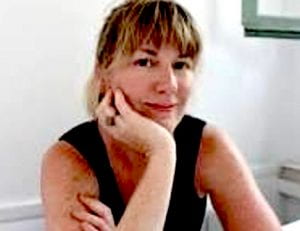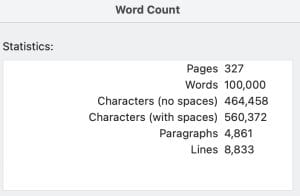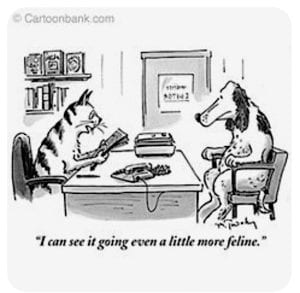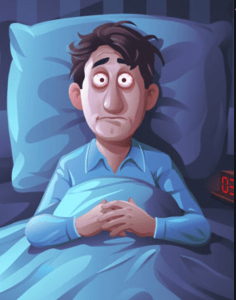 Maggie Shipstead (left) writes, “John Gardner famously wrote that fiction should be a “vivid, continuous dream,” but some readers’ willingness to dream is more robust than others. Some people will shut a book forever at the first sign of an error, their trust in the writer and their suspension of disbelief irrevocably lost. Others will happily read along through almost anything, swallowing the most preposterous plot points, the most egregious anachronisms, and the most glaring inconsistencies…But I think sloppiness is worth trying to avoid, both out of pure principle (why get something wrong when you could get it right?) and because mistakes can be indicative of an author not pressing hard enough on the world she’s building, not making it sturdy enough, settling for a facade.” In her article, Maggie mentions good, or ill-meaning, folks who delighted in pointing out errors in her published work. I had a textbook that was in its 3rd reprint when along came a young student (aka smarty pants) who wrote to my publisher to point out an error, and it was an obvious one—one that escaped the keen eye of editor, writer, proof-reader, etc. How could this happen? In my first novel, the errors kept creeping out of the pages; proof that I was a lousy writer? No matter how hard I tried, the errors were there and my flame-thrower spell checker never seemed to pick them up. When all seemed well, my American spelling lapsed into English spelling; a tense changed within a paragraph, etc. Why all these mistakes? Because, writers, like other humans, are fallible. We get tired. We get over our draft revisions and we long to be rid of the manuscript. My advice to those who find errors? Tell us, but then hide under the bed-covers before we find you and hit you over the head with our revised edition :-).
Maggie Shipstead (left) writes, “John Gardner famously wrote that fiction should be a “vivid, continuous dream,” but some readers’ willingness to dream is more robust than others. Some people will shut a book forever at the first sign of an error, their trust in the writer and their suspension of disbelief irrevocably lost. Others will happily read along through almost anything, swallowing the most preposterous plot points, the most egregious anachronisms, and the most glaring inconsistencies…But I think sloppiness is worth trying to avoid, both out of pure principle (why get something wrong when you could get it right?) and because mistakes can be indicative of an author not pressing hard enough on the world she’s building, not making it sturdy enough, settling for a facade.” In her article, Maggie mentions good, or ill-meaning, folks who delighted in pointing out errors in her published work. I had a textbook that was in its 3rd reprint when along came a young student (aka smarty pants) who wrote to my publisher to point out an error, and it was an obvious one—one that escaped the keen eye of editor, writer, proof-reader, etc. How could this happen? In my first novel, the errors kept creeping out of the pages; proof that I was a lousy writer? No matter how hard I tried, the errors were there and my flame-thrower spell checker never seemed to pick them up. When all seemed well, my American spelling lapsed into English spelling; a tense changed within a paragraph, etc. Why all these mistakes? Because, writers, like other humans, are fallible. We get tired. We get over our draft revisions and we long to be rid of the manuscript. My advice to those who find errors? Tell us, but then hide under the bed-covers before we find you and hit you over the head with our revised edition :-).


 What value do I place on a professional editor? HEAPS!
What value do I place on a professional editor? HEAPS!
 Maggie Shipstead (left) writes, “John Gardner famously wrote that fiction should be a “vivid, continuous dream,” but some readers’ willingness to dream is more robust than others. Some people will shut a book forever at the first sign of an error, their trust in the writer and their suspension of disbelief irrevocably lost. Others will happily read along through almost anything, swallowing the most preposterous plot points, the most egregious anachronisms, and the most glaring inconsistencies…But I think sloppiness is worth trying to avoid, both out of pure principle (why get something wrong when you could get it right?) and because mistakes can be indicative of an author not pressing hard enough on the world she’s building, not making it sturdy enough, settling for a facade.” In her
Maggie Shipstead (left) writes, “John Gardner famously wrote that fiction should be a “vivid, continuous dream,” but some readers’ willingness to dream is more robust than others. Some people will shut a book forever at the first sign of an error, their trust in the writer and their suspension of disbelief irrevocably lost. Others will happily read along through almost anything, swallowing the most preposterous plot points, the most egregious anachronisms, and the most glaring inconsistencies…But I think sloppiness is worth trying to avoid, both out of pure principle (why get something wrong when you could get it right?) and because mistakes can be indicative of an author not pressing hard enough on the world she’s building, not making it sturdy enough, settling for a facade.” In her The other night I could not get to sleep and tossed and turned, mulling over my second full edit. I realized that I had made a minor continuity error and had to get up to fix it. Phew!
The other night I could not get to sleep and tossed and turned, mulling over my second full edit. I realized that I had made a minor continuity error and had to get up to fix it. Phew!